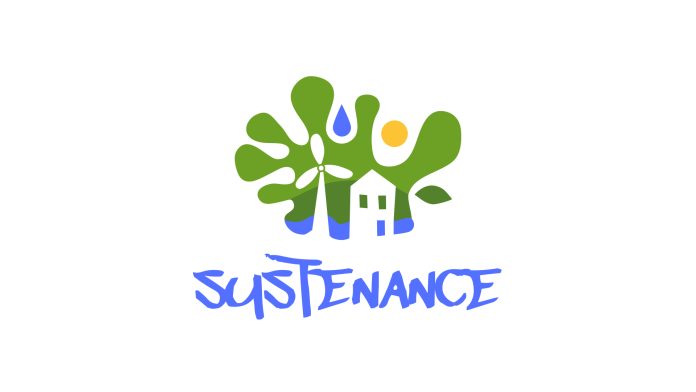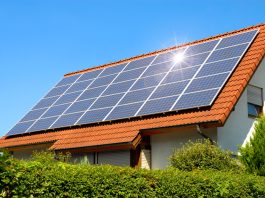As the SUSTENANCE Project concludes its transformative journey in December 2024, its legacy resonates as a beacon of innovation in sustainable energy systems.
Over three and a half years, this EU-funded initiative has delivered groundbreaking insights and practical solutions, driving the energy transition forward.
In its latest newsletter, we explore the project’s highlights and the key lessons learned.
A global collaboration for a greener future
The SUSTENANCE Project united a diverse consortium of partners from Europe and India to tackle the challenges of building carbon-neutral energy communities.
By integrating cutting-edge technology and community-driven strategies, the project demonstrated scalable models for energy independence and resilience.
Demonstrator sites across Denmark, Netherlands, Poland, and India showcased innovative applications of sustainable energy solutions.
These locations highlighted how local context significantly influences the adoption of green technologies, from advanced heat pumps in Europe to solar-powered e-rickshaws in India.
The key lessons learned from the SUSTENANCE Project include:
1. Integrating EVs, heat pumps, and PVs
The project demonstrated that integrating electric vehicles (EVs), heat pumps, and photovoltaic (PV) systems can yield significant benefits but presents technical and infrastructural challenges.
At sites like Aardehuizen in the Netherlands, a high density of installations caused transformer overloads.
By employing advanced Energy Management Systems (EMS), SUSTENANCE effectively optimised self-consumption and mitigated these issues.
However, the lack of standardisation in grid infrastructure and vehicle-to-grid integration underscores the need for further development.
2. Diverse paths to energy independence
Communities have varied starting points and priorities in their journey toward energy independence. European demonstrators, such as the Vriendenerf community in the Netherlands, leveraged existing infrastructure to enhance self-sufficiency. In contrast, Indian sites leapfrogged traditional systems directly to more sustainable solutions.
3. Heating’s unique challenges
Heating systems’ electrification poses distinct challenges, particularly in Europe. While heat pumps reduced reliance on fossil fuels, their integration strained ageing electricity grids. In Indian demonstrators, innovative heat pump applications, such as drying agricultural products, showcased the potential for dual-purpose solutions. The project’s EMS innovations proved vital in balancing grid loads and maintaining stability.
4. Regulatory barriers to innovation
Regulatory frameworks often lag behind technological advancements, hindering widespread adoption. In the EU, complex regulations around energy sharing limited some communities’ autonomy.
The absence of standardised protocols for renewable energy systems further compounded these challenges. Addressing these gaps is critical for accelerating the energy transition.
5. Adapting business models across contexts
Transferring business models between regions revealed the importance of contextual adaptability. For instance, NEOGRID’s EMS, reliant on dynamic pricing, required modifications for markets without such mechanisms.
Despite regulatory and market differences, the system’s core functionality – optimising renewable energy use – remained impactful, highlighting its scalability potential.
6. Raising public awareness
Citizen engagement emerged as both an opportunity and a challenge. Surveys revealed widespread support for renewable energy but a lack of understanding of individual roles in the transition.
To bridge this gap, SUSTENANCE developed educational materials, empowering communities to participate more actively.
Policy recommendations for sustainable progress
The SUSTENANCE Project’s findings informed a set of policy recommendations designed to accelerate the energy transition:
- Capacity building: Invest in training and workshops for local communities.
- Regulatory alignment: Harmonize EU and local regulations to remove bureaucratic hurdles.
- Scalable solutions: Develop plug-and-play technologies for easier adoption.
- Financial support: Allocate national and EU funds to bolster startups and SMEs.
- Simplified procedures: Streamline administrative processes for energy projects.
- Standardisation: Promote interoperability between renewable systems.
- Regulatory flexibility: Facilitate energy sharing and adaptive grid policies.
- Awareness campaigns: Counter misinformation and enhance public understanding.
While the SUSTENANCE Project’s operational phase is ending, its impact will endure. The tools, lessons, and policy frameworks developed over its tenure serve as a foundation for future efforts in sustainable energy.
As global communities strive for carbon neutrality, the SUSTENANCE Project stands as a testament to the power of collaboration, innovation, and adaptability.
Click here to read the SUSTENANCE Project’s latest newsletter.









